Wring, Press, and Twist: Shibori Luminaires by Suzusan
For four generations, the Murase family has been working with textiles using the Shibori technique, which involves manipulating fabric to create three-dimensional pattern: “Softly subsiding contour and softly flowing colour transitions which result in a rhythmically structured surface structure, are characteristic of materials that were adorned with this technique.” Leave it to the younger generation, however, to combine this craft with contemporary design and high fashion. In 2008, Hiroyuki Murase transported his family’s Shibori know-how to Düsseldorf, Germany in the form of Suzusan, a brand offering fabrics, scarves, and one-of-a-kind Shibori luminaries.
Shibori luminaires. Manufactured by Suzusan.
Japanese Lamps Fuse Textile Tradition and Modern Design
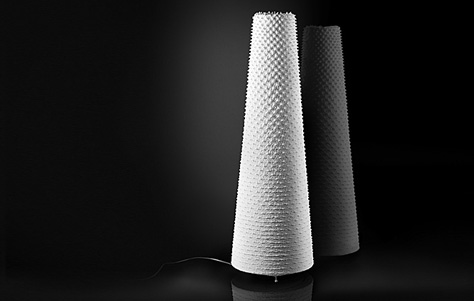
Handmade in Japan, Suzusan’s line of luminaries includes pendant, floor, and table lamps in different fabric finishes and dynamic shapes. These lamps get their unique shades from the Japanese tri-dimensional fabrics. The Shibori process creates a textured surface: “Certain parts of the textile surface are folded in a special way, tied off or taken in, whereby parts of the surface are reserved.” The result is a material with three-dimensional patterns, subtle color gradations, and tactile pleasure.
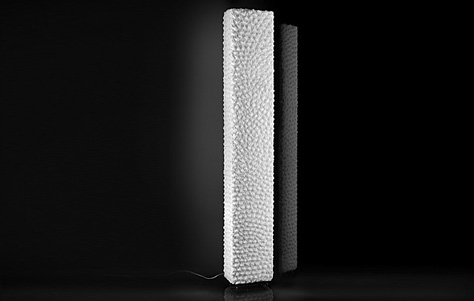
By taking the Shibori technique and applying it to luminaries, Suzusan has melded Eastern craftsmanship with Western contemporary design. The company’s pendant, table, and floor lamps highlight the beauty of the technique in the sleek form of cylinders, cones, and spheres. Contemporary finishes and German engineering further enhance the Suzusan luminaries: “Depending on the model, the lamp has graceful feet and noble fittings made of brushed or silver-plated nickel.”
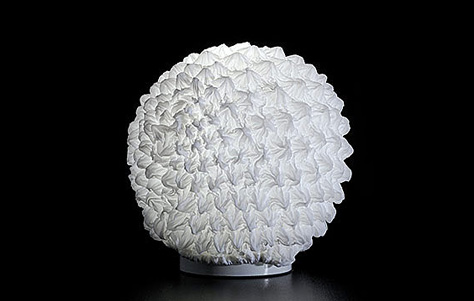
All of the Suzusan lamps are unique, since Shibori reflects the style of the craftsman: “No two craftsmen reserve the same material in the same fashion and as such the products always feature the respective artisan’s signature.” Despite the lamps’ distinctive flair, Suzusan offers seven different models: Hokkaido, Ichi, Kazan, Kukuru, Shizuku, Toki, and Tsulala. A large-scale cylindrical pendant, Hokkaido features a surface that resembles a graceful sea urchin. Kukuru’s shade looks like pressed flowers, and Toki’s approximates the elegant lines of a pleated fan.
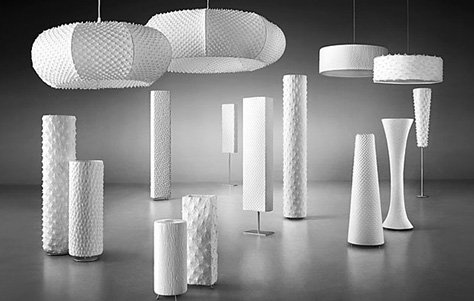
Whatever the model, you’ll enjoy the rich beauty of Suzusan luminaires, since the mark of their creator is reflected in the lamp’s surface—each as individual as a zebra’s stripes or a human fingerprint. And through a fair trade concept, Suzusan gives the Shibori craftsmen a share of the price premium, ensuring that the Japanese textile art will continue to flourish.
Via Contemporist.
About the Manufacturer: Suzusan manufactures fabrics, scarves, and luminaries using the ancient Japanese art known as Shibori, a textile finishing technique based on three-dimensional pattern and contrasts of fluidity and weight. Suzusan combines the textile knowledge of Hiroshi Murase and the business acumen of his son: “The Düsseldorf label has its roots in Arimatsu, Japan—where the Murase family has cultivated their knowledge of hand-made fabrics since more than 100 years.”
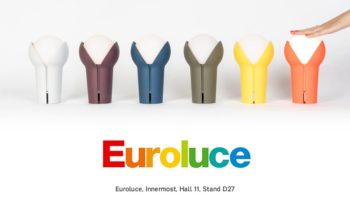
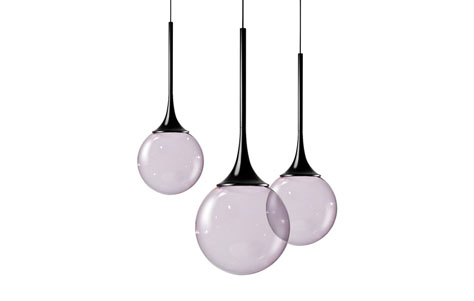
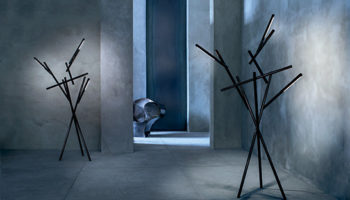
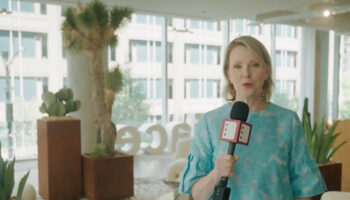
Leave a Reply